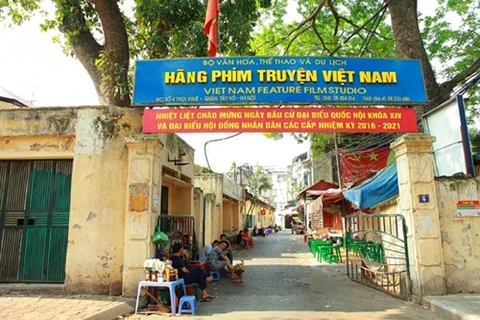Hanoi (VNA) - Along with owners of State invested firms, the Ministry of Finance (MoF) will also participate in decision-making on dividend payout at firms to better manage State assets.
The decision was made under the MoF’s draft decree to supplement Decree 91/2015 on managing and using State capital invested in firms.
According to the MoF, the dividend, if being paid at the firms, will be part of the State budget’s revenue so that it is appropriate for the ministry to take responsibility in monitoring it.
Dang Quyet Tien, deputy director of MoF’s Corporate Finance Department, said the draft regulation is aimed at enhancing the management of dividend and profits gained from State capital investment, ensuring owners of firms do not keep profits for their own purposes because of which interest from State capital is not collected adequately.
In fact, in recent years, some banks with State investment capital have paid dividend only to small shareholders, including executives or directors, but not State shareholders. This results in losses for the State, Tien said.
Tien said in 2016, the MoF repeatedly sent letters requesting the State Bank of Vietnam to direct the representatives of State capital in BIDV and VietinBank to vote on paying dividend in cash for fiscal year 2015 and contributed the entire dividend to the State budget.
After many follow-ups until early 2017, VietinBank finalised a plan to pay cash dividend for 2015 at the rate of 7 percent, while BIDV kept its cash dividend payment at 8.5 percent. According to calculations of some experts, the money collected by the MoF from dividends was estimated at 4.6 trillion VND (201.75 million USD).
The State currently holds stake in seven commercial banks - Agribank, BIDV, Vietinbank and Vietcombank, as well as Construction Bank, Ocean Bank and GP Bank.
Finance expert Ngo Tri Long agreed with the MoF’s draft regulation, saying it would be an effective way to help the MoF mobilise capital for the State budget when owners of the firms did not pay dividend and used the funds for other purposes.
In contrast, expert Huynh Trung Minh said the regulation meant the State would apply more supervision measures on State invested firms.
He was concerned that if approved, the regulation would cause difficulties for firms as they would have to consult the MoF on all issues.
Besides this, Minh said it would make the firms’ annual general meetings inconsequential and the shareholders would feel they have no power. Therefore, investors’ confidence in State invested banks in particular and State invested firms in general would decline and this would affect the financial market, Minh said.
Echoing Minh, expert Le Dang Doanh suggested the MoF not add the regulation to the draft decree but instead make some changes in State invested firms.
“It should first set up a body to manage State capital at State invested firms. The body will decide all relevant issues of the firms, including dividend payout and profits. This will be according to the market mechanism, avoiding inconvenience for firms,” Doanh said. -VNA
VNA
























